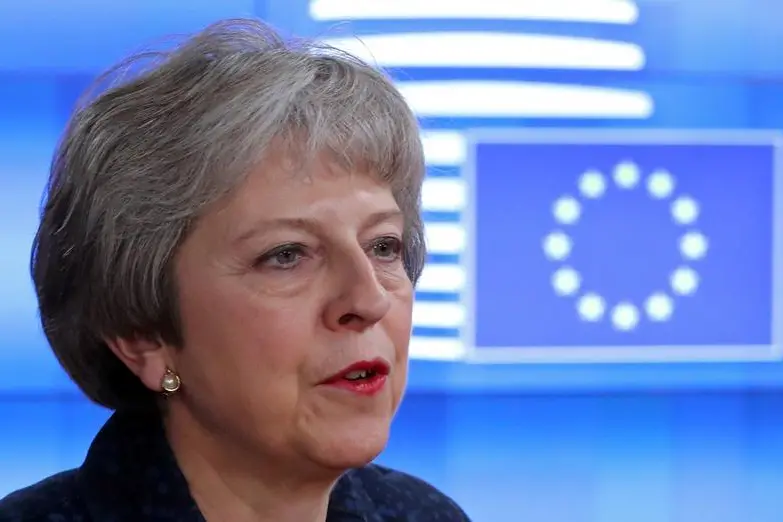PHOTO
Sterling tumbled to its weakest since April 2017 on Monday after Prime Minister Theresa May pulled a parliamentary vote on herBrexit deal with the European Union, panicking investors about deepening political uncertainty in Britain.
May said on Monday she was delaying the planned vote as her deal would likely be rejected "by a significant margin". Colleagues had told May that she faced a rout in the vote, that was set for Tuesday.
The move thrusts Britain's exit from the European Union into turmoil, with possible options including a disorderly no-deal Brexit, another referendum on EU membership, or a last minute renegotiation of May's deal with Brussels.
May said she would do all she could to secure further assurances from the EU on the so-called backstop arrangement, a crucial part of the deal bitterly opposed by many of her fellow conservatives and opposition parties.
"Uncertainty is the only thing hitting the pound at the moment," said Kallum Pickering, an economist at Berenberg.
The pound fell 1.6 percent against the dollar to as low as $1.2507 <GBP=D3>, most of the loss coming after May confirmed she was delaying the vote.
Against the euro, the pound dropped 1.5 percent to as weak as 90.875 pence <EURGBP=D3>, its lowest since August, before recovering some ground in late European trading.
Britain's exporter-heavy FTSE 100 <.FTSE> index, which usually rises when sterling falls, succumbed to widespread selling pressure and fell 0.8 percent as investors fretted about the consequences of the political chaos for UK companies. The more domestic FTSE 250 <.FTMC> index tumbled 2 percent.
Perceived safe-haven British government bonds rallied, with 10-year British government bond yields falling 7.5 basis points to 1.19 percent, the lowest since mid-August <GB10YT=RR>.
While the government considers when to next hold a parliamentary vote, it is stepping up contingency planning for a no-deal Brexit when it is due to leave on March 29.






















